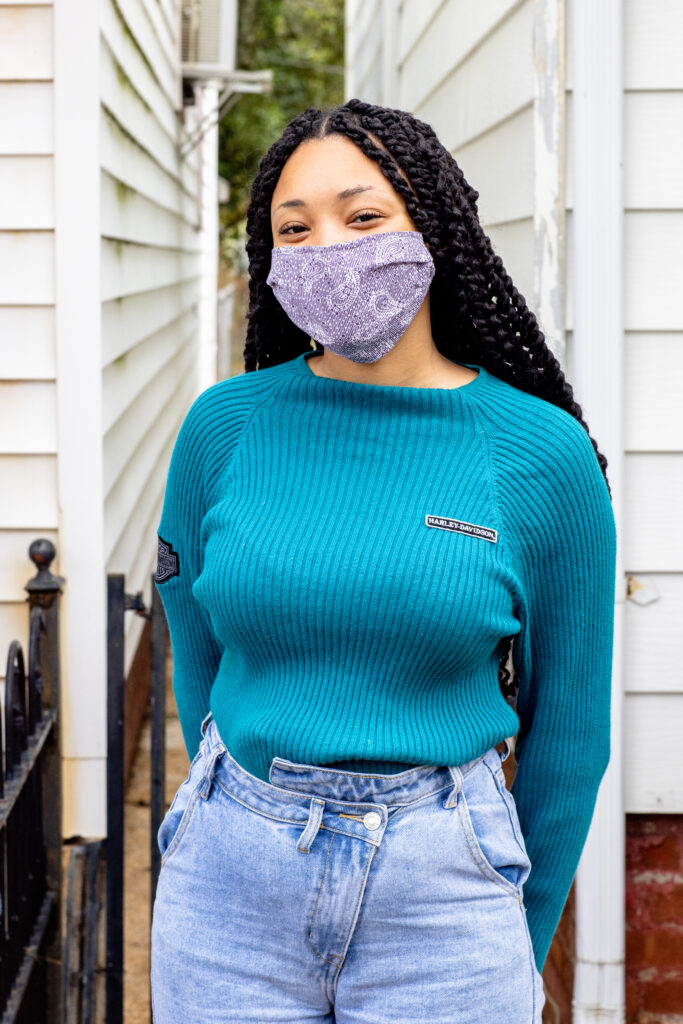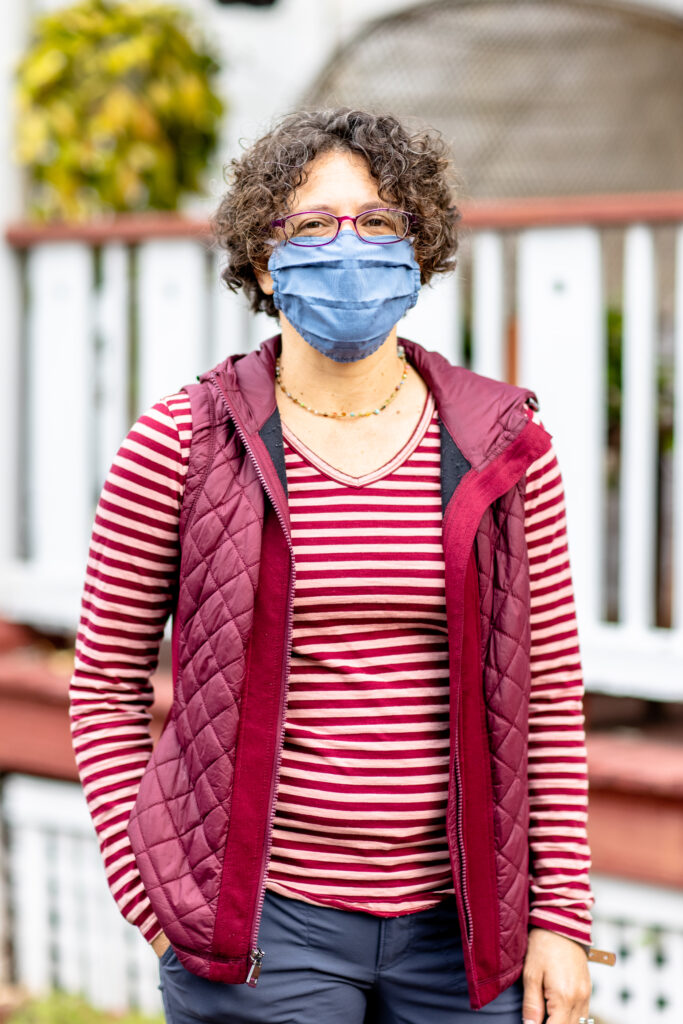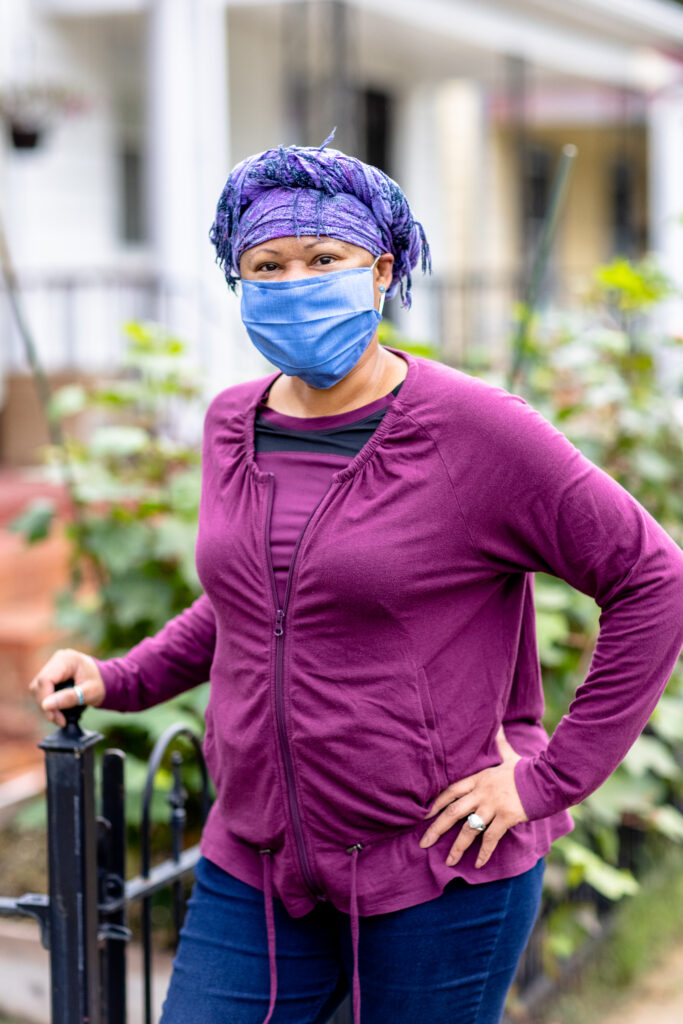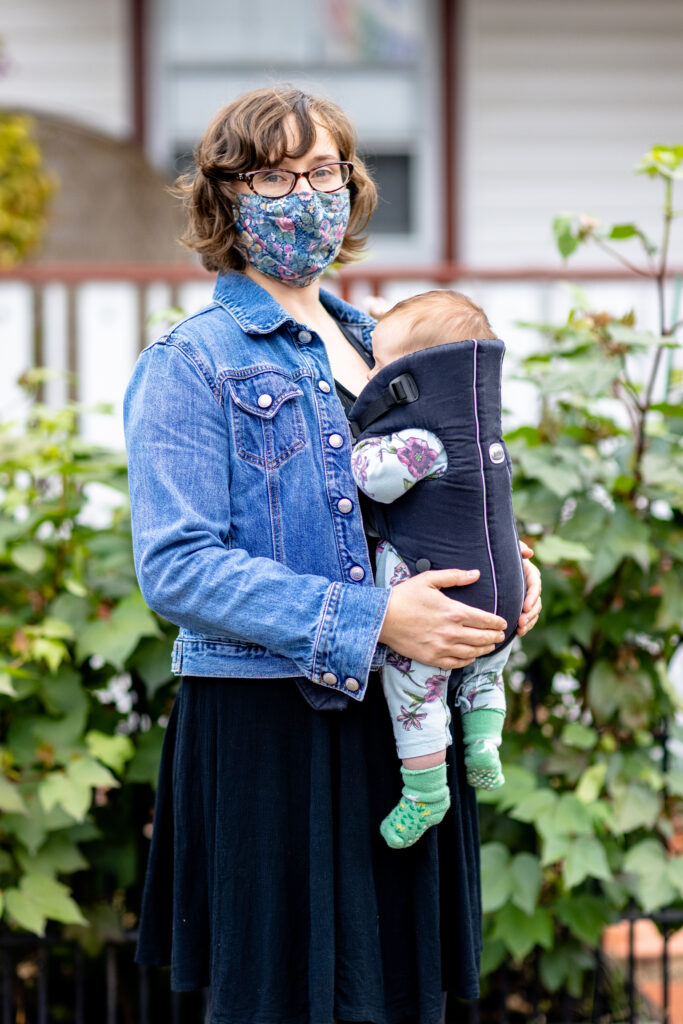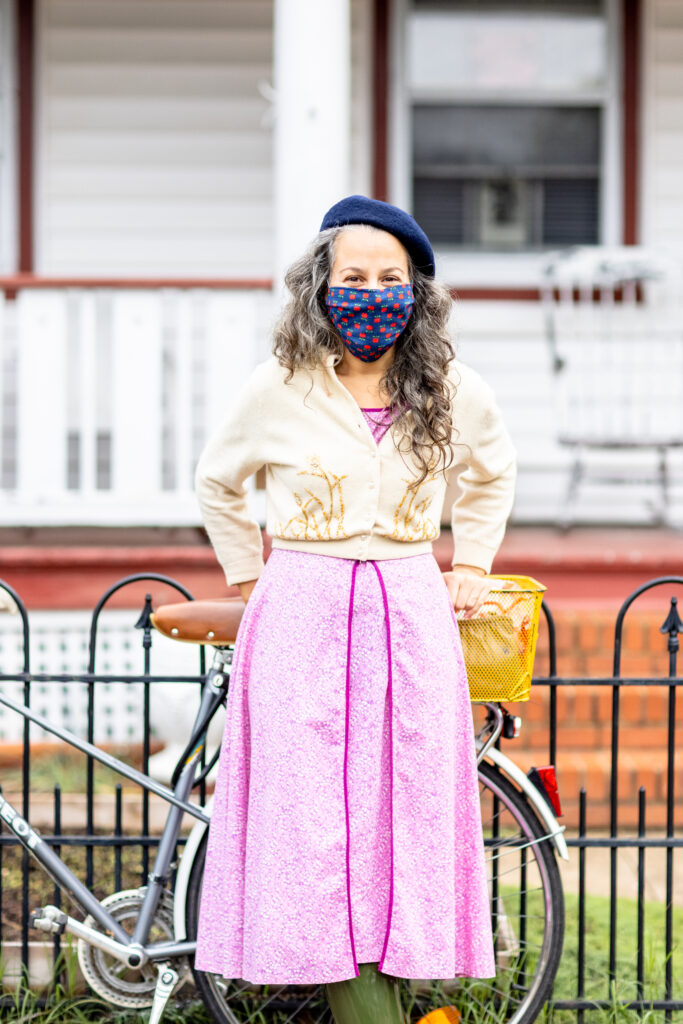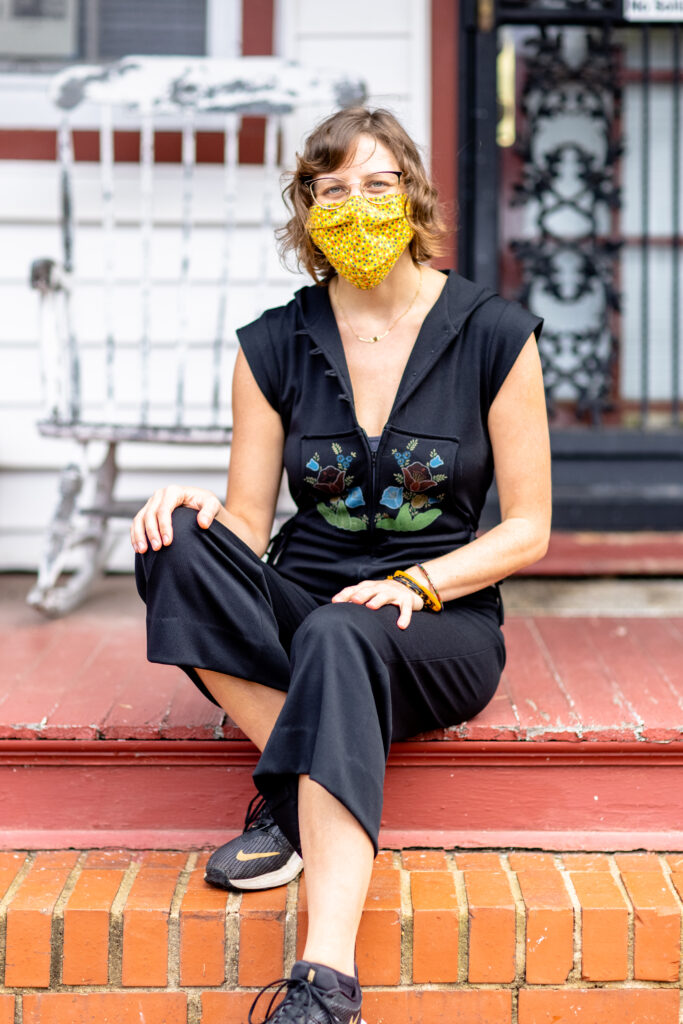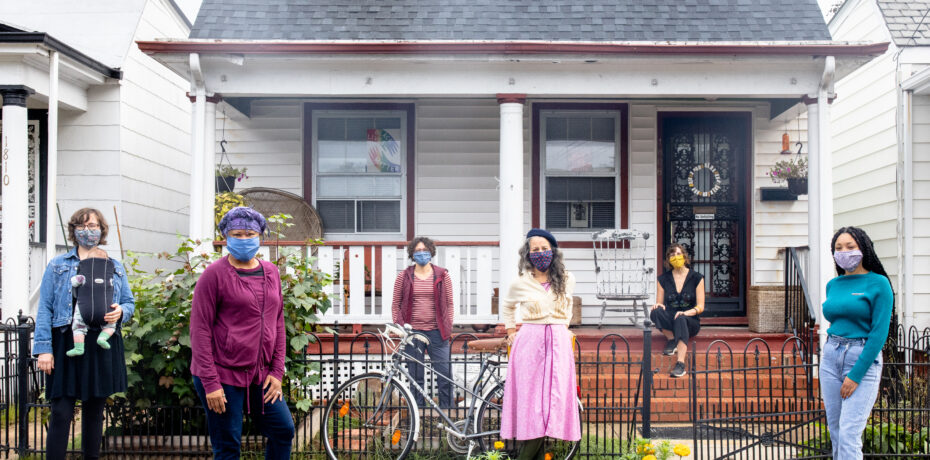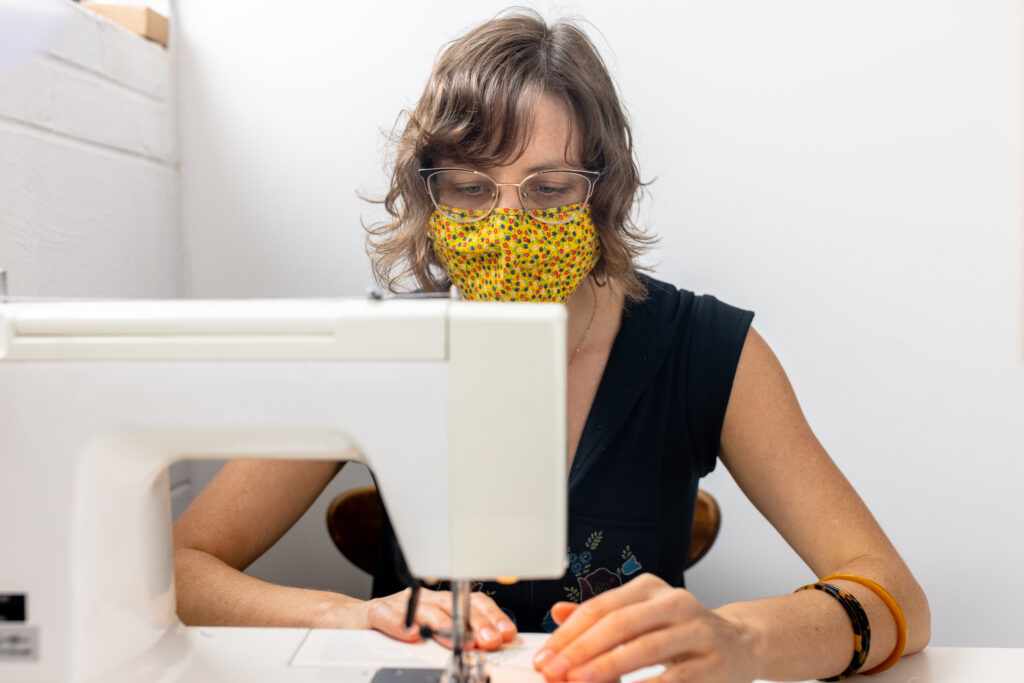
Do it for others. Do it for love. Do it for kindness. We don’t really care why you do it — just Mask Up, RVA. Sporting a facemask isn’t political, it’s smart. It shows self-discipline, self-sacrifice, and a commitment to community. That’s why we’ve teamed up with photographer Nick Davis on the “Mask Up, RVA” series.
Davis is doing what he does best — capturing compelling images of those in the Richmond area who do their part to make it a happier, healthier, and more inclusive place to live. We’re combining powerful images and words that Davis has collected from local, small businesses responsible for creating a variety of face shields and face masks that are helping us push through the pandemic. These are the people who roll up their sleeves during a crisis. These are the people who proactively find solutions and look for ways to use their unique talents. These are the people that give us no excuse not to mask up.
With that in mind, let’s meet Lisa Hutchinson, a sustainable seamstress based in Richmond who initially created TOP STITCH as a way to keep clothing out of landfills. Lisa, who studied fashion design at Drexel University, has been sewing for over twenty years. At TOP STITCH, Lisa has earned a reputation for clothing repair, alternative alterations, mindful mending, creative fixes, and for teaching sewing lessons. Today, she has turned her skills toward protecting the Richmond community.
Take it away, Lisa …
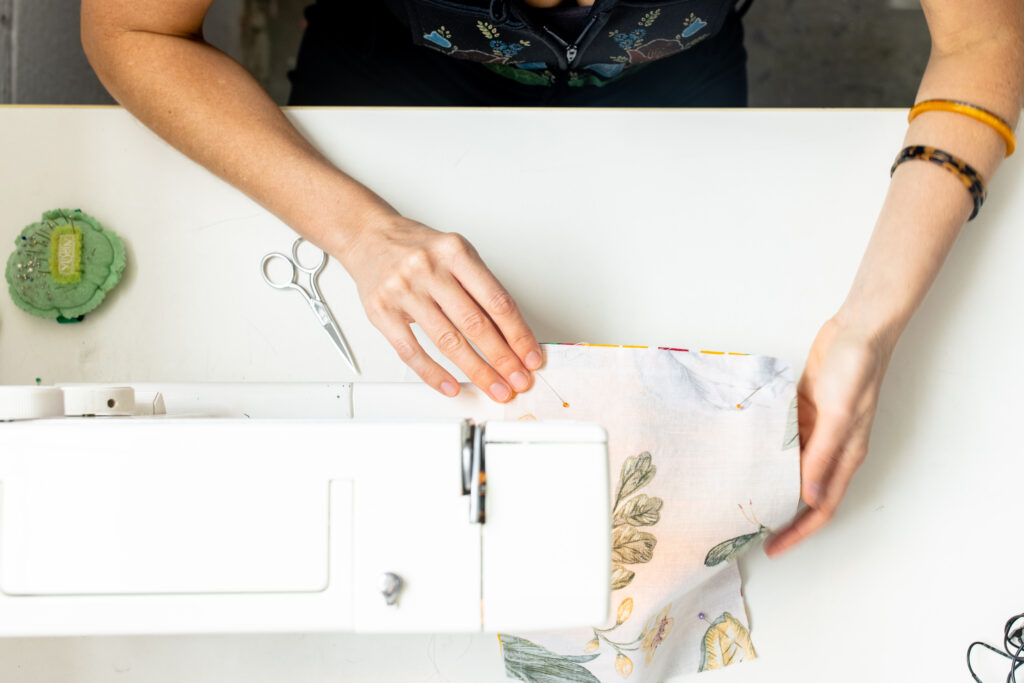
Let’s talk about your business prior to the current health crisis and how it has evolved in recent months.
Before Covid I taught one-on-one and group sewing lessons both by hand and machine, helping people to learn new skills or work on their projects that were already in motion. In addition to classes, I offer mending services through TOP STITCH, a low-waste clothing repair business. Providing basic repairs like missing buttons, all the way to vintage clothing and textile restoration in an effort to preserve memories and lighten the load of the landfill. Encouraging people to pull together their “to do” pile that lingers around the house but never gets stitched. Operating by individual appointments in my sewing studio, I would meet with customers to assess damage and do fittings if alterations were needed. Pre-pandemic I also had help from Diana Harland a few hours a week on any sewing work that was coming in. The pandemic caused us to make multiple adjustments since the onset. TOP STITCH now offers repairs with a contact free porch drop off system as well as sewing lessons and mini consultations through ZOOM.
When did you shift to producing personal protection equipment?
When I heard the murmur of masks in the second week of March, I looked around a lot for patterns online and called my college professor and dear friend, Juanita Phillips, for advice. I did some IGTV videos showing people the different styles and options if they wanted to make their own, followed by two ZOOM sessions, walking people through the process of construction. Then the calls began, people asking if we were producing them. One of them, my oldest friend, asking because the Patient First she works for in Maryland had run out of masks. They were asked to reuse their last disposable mask for an undetermined amount of time. She was hoping we could make 50 for the staff. I called Diana immediately to see if she was up for the challenge with me, she had been staying home starting a week or so earlier. We wanted to be extra careful as she was entering her third trimester of pregnancy. She said it would be a great project to be a part of and could easily sew from home — she stitched over 350 masks before giving birth.
Seeing many people lose their regular hours at work and thinking they may benefit from some additional weekly income, I started contacting individuals from the local sewing scene to see if they wanted to join us in the process.
Can you describe how many masks you’ve created and your process?
This is all happening at a time when we need to take care of ourselves and our community as much as possible. While standing up for black lives, addressing racial injustices and taking care of our mental and physical health all at once, it seemed like the best idea would be a stress free assembly line to avoid any kind of burnout. Which meant as many hands as possible taking on different tasks in their own home, on their own schedule. We have a few people cutting fabric, mainly Kim Chiarchiaro, Elizabeth Cogar and Maggi Tinsley. Zebunissa Shinas and Tylah Jenkins cutting nose wire and elastic, and 4 of us sewing the finished product – including Tahmari Tupponce and Dawns Collins and Diana Harland (rejoining after giving birth in July). Collectively we have made almost 600 masks and counting. Once everything is cut, masks are assembled with two layers of cotton, two pleats, a nose wire and elastic loops, for an easy to wear and wash mask. This is a huge community effort and I am ever grateful for these amazing humans. It could not have been done without each and every one of them.
What makes your masks unique?
Our masks are made with 100% cotton fabric donated by our local sewing community, making each batch a limited run of really great prints that can change weekly. The style we produce is wider than most, providing extra coverage ear to ear and helps to fit a broad range of face shapes. We have donated our masks to a variety of people, groups, and causes since day one.
Can you share any community outreach efforts, donations, and partnerships you’ve launched as part of your mask making efforts?
Our main motivation for making masks was to donate to frontline workers and individuals in need from the very beginning. Places like Patient First, USPS and Ellwood Thompson were some of our first few drop offs. We are now donating to nonprofits and organizations around town like Mutual Aid Distribution, Richmond Behavioral Health Authority, Neighborhood Resource Center of Greater Fulton and Side By Side. We are able to donate them on a regular basis because of generous contributions that people have made and through selling masks to those who are financially able. Most recently we donated a big batch to RVA26’s Inmate Mask Drive for RCJC inmates.
What are your plans for returning to your previous business model and how can the community support you?
If you would like to purchase a mask please reach out at topstitchmending@gmail.com, @topstitchmending on IG + Facebook or by phone (804) 592-6380. If you are interested in making a financial contribution toward our efforts you can donate through Venmo at Lisa-Top-Stitch (6380 in case it asks) with the note “donation.” As for clothing repair and mending services, all exchanges are contact free and can be scheduled by reaching out through the same avenues listed above. If you would like to take a sewing lesson through ZOOM you can message me there as well. TOP STITCH is a word of mouth business so it is always appreciated if you can tell a friend, follow us on social media and spread the word about our services.
